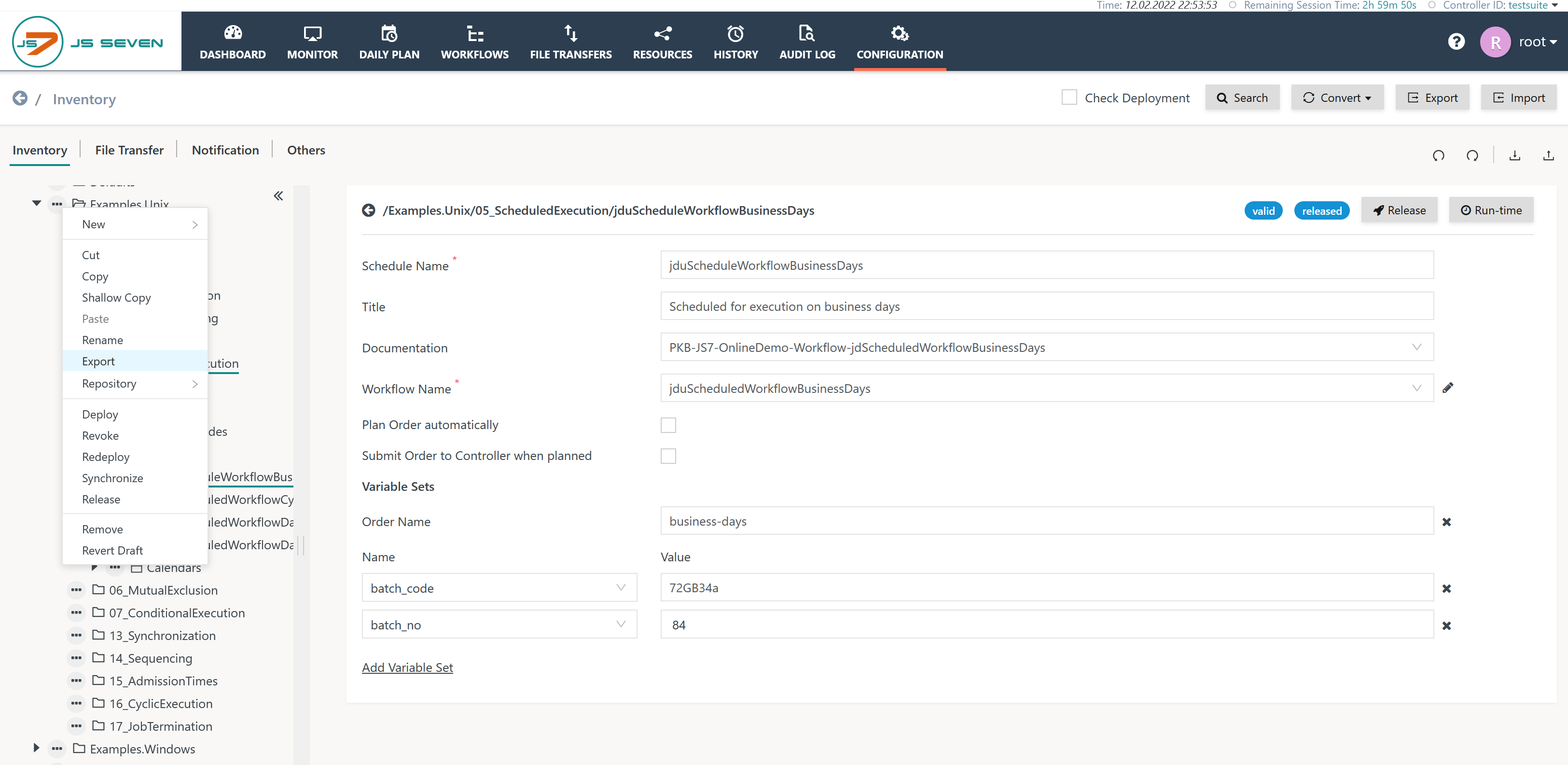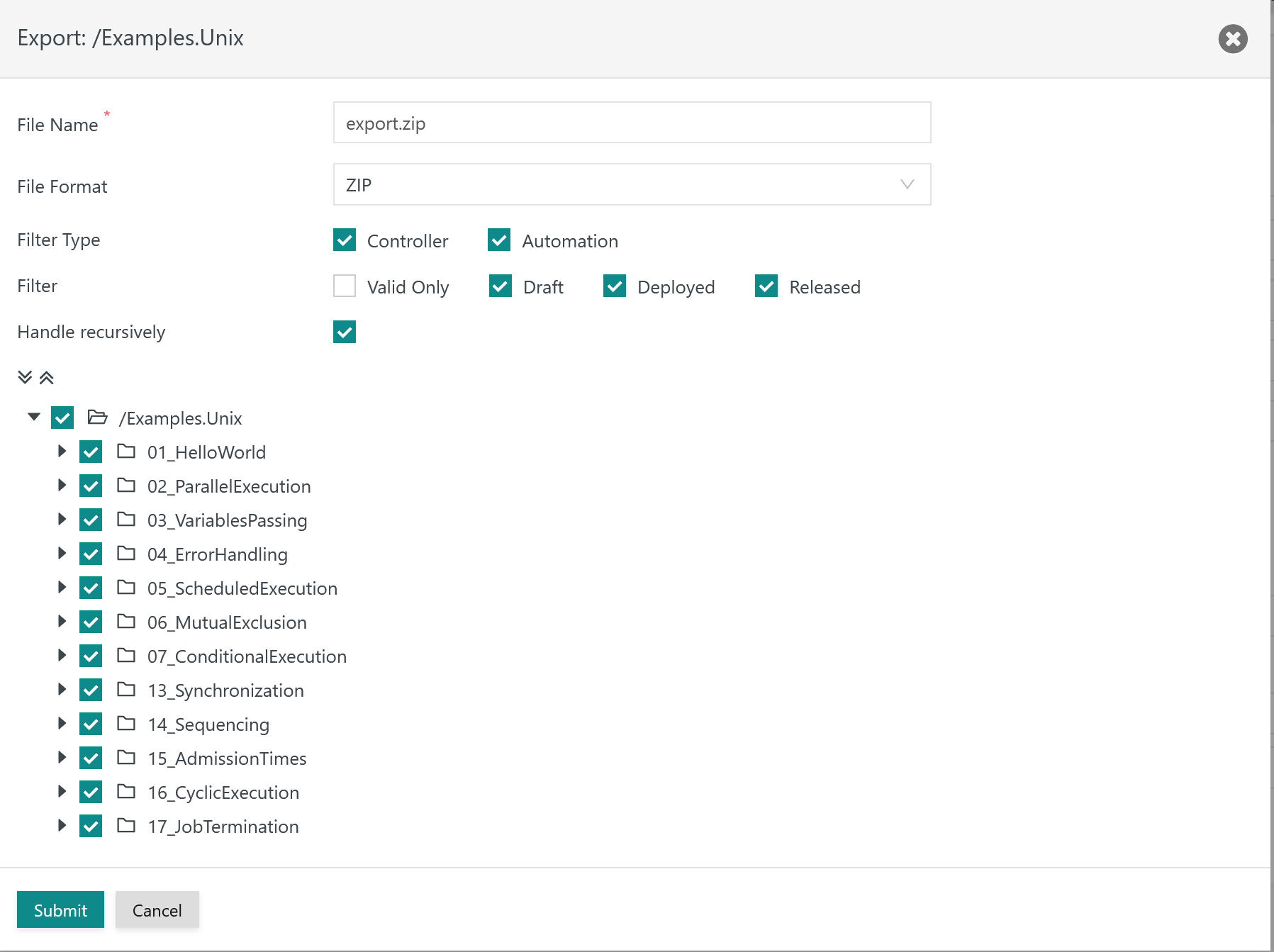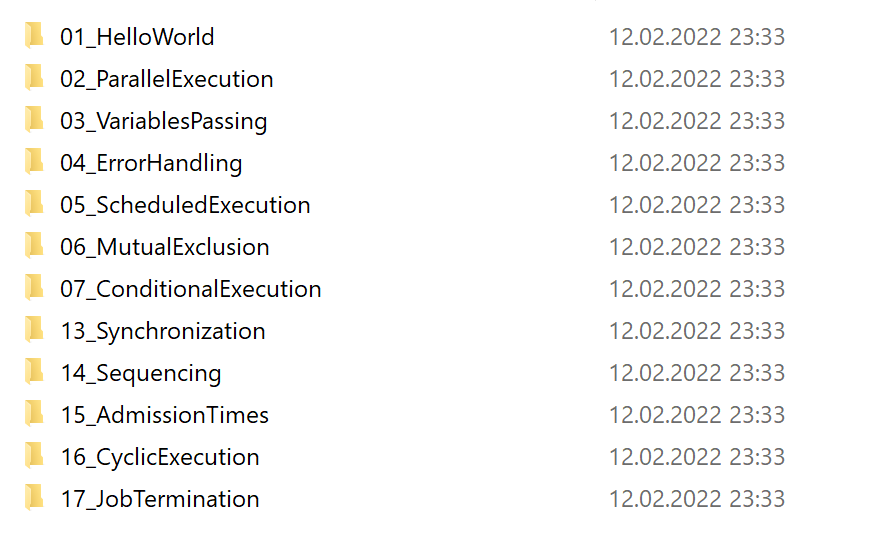Introduction
The JS7 - Inventory provides the functionality to import and to export scheduling objects such as workflows, calendars, schedules etc.
- Import an export can be used
- for migration purposes when upgrading between JS7 minor/major releases,
- as part of a rollout strategy for example to rollout from dev -> test -> prod environments. A more elaborated rollout strategy includes to use JS7 - Inventory Git Integration.
- Import and export
- include scheduling objects only, not the JS7 - Deployment History and not the JS7 - Daily Plan History,
- therefore are not a replacement for backups, however, they can be used to restore a single version of any scheduling object.
Export
Export Operation
The export function is available from the Export button and from a folder's action menu like this:
The Export button is used to select scheduling objects starting from the top-level folder.
The Export action menu is used to export objects starting from the given folder.
After choosing the export action the following window offers to select objects:
Explanation:
- File Name
- The name and extension of the file to which the export is performed.
- Consider that an extension has to be specified and has to match the File Format, e.g.
export.zip,export.tar.gz.
- File Format
ZIP: This format works for most Unix operating systems and for Windows and creates an archive with a .zip extension.TAR_GZ: This format works preferably for Unix operating systems and creates an archive with a .tar.gz extension.
- Filter Type
Controller: The export includes scheduling object types that are deployed to a Controller such as Workflows, Job Resources etc.Automation: The export includes scheduling object types that are released by JOC Cockpit such as Calendars and Schedules.
- Filter
Valid only: JOC Cockpit does not force users to have objects in a valid status, for example during ongoing work on workflows. Invalid, i.e. incomplete, objects can be exported and imported.Draft: The export includes a single version of an object. This option specifies that the draft version of an object will be preferred for export if a draft version exists that is newer than the deployed or released version.Deployed: Specifies that the latest deployed version of an object is exported. If an object is deployed a number of times then JOC Cockpit holds the JS7 - Deployment History and adds the latest version to the export file.- If used with the
Draftoption in place then this includes to prefer the draft version to the deployed version of an object if a newer draft version exists. - If used without the
Draftoption being in place then deployed objects only will be exported and objects for which a draft version only exists will be omitted from export.
- If used with the
Released: Specifies that the latest released version of an object is exported.- If used with the
Draftoption in place then this includes to prefer the draft version to the released version of an object if a newer draft version exists. - If used without the
Draftoption being in place then released objects only will be exported and objects for which a draft version only exists will be omitted from export.
- If used with the
Handle recursively: Specifies that selection of a folder includes to export any objects and sub-folders recursively. If objects should be selected individually then this options should not be used.
When hitting the Submit button the export file is created and is offered for download.
Export File
The export file is an archive in .zip or .tar.gz format. Starting from the above example that exported the Examples.Unix folder the root of the export file looks like this:
The meta_inf file includes information about the JOC Cockpit version, inventory schema version and the version of the JS7 - REST Web Service API that were used during export. This information is important for later import with newer versions of JOC Cockpit as it triggers the migration of objects to newer inventory schema versions.
The contents of the Examples.Unix folder is the list of includes sub-folders like this:
The contents of the 05_ScheduledExecution folder is a list of objects in JSON format.
The object type is indicated by the respective extension such as .calendar.json, .workflow.json etc.




